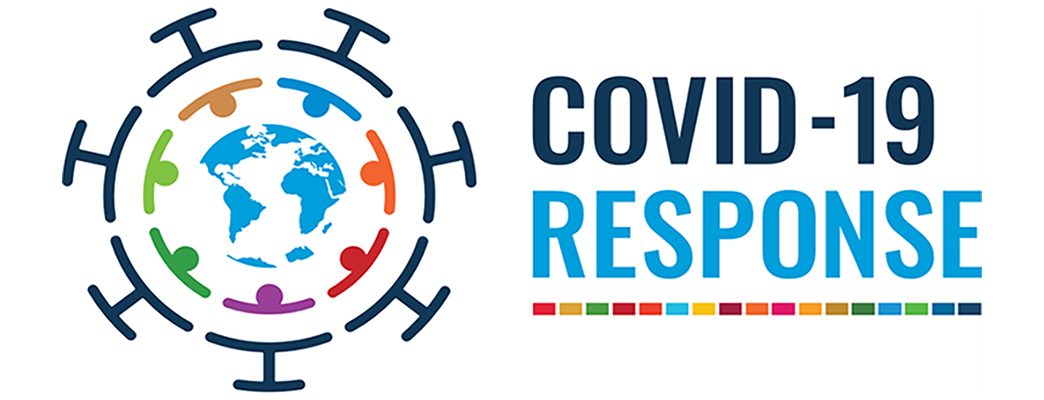Excellencies, Colleagues and distinguished guests,
Thank you for “Joining Forces” with us this morning to discuss policy solutions for an inclusive, and truly human centric, COVID-19 response.
Globally, our commitment to achieving the Sustainable Development Goals (SDGs) has not changed, but the urgency to act has.
We have an opportunity to plot a multilateral response and to discuss policy solutions that countries can immediately use to combat the COVID-19 pandemic, preserve advances made, and get back on track towards the SDGs.
Excellencies,
We are developing a better sense of the next steps needed to overcome the health crisis through: suppressing transmission, building capacity, and finding a vaccine.
At the same time, we are only beginning to realise the true scale of the social and economic crisis that lies ahead of us.
Not only of the new problems that this global pandemic has created:
Including the 1.6 billion workers in the informal economy – nearly half of the global workforce – who are in immediate danger of losing their livelihoods.
But also of the challenges we thought we were once on track to overcome:
- Global poverty is set to increase for the first time since 1998, with some regions experiencing poverty levels similar to 30 years ago.
- Or malaria, where COVID-19 related disruption in programing in sub-Saharan Africa puts us at risk of returning to malaria mortality levels from 20 years ago.
- Or violence against women and girls, which has become a shadow pandemic, with the number of victims increasing to the hundreds of millions worldwide.
These are incomprehensible setbacks to our hard-won development gains.
These facts are shocking, but they all point to one conclusion: we are facing a new reality post COVID-19.
In dealing with this accelerating and unpredictable change, we must ask ourselves: how can we find solid footing in the new evolving normal?
As the Secretary-General has highlighted: the creativity of the response must match the unique nature of the crisis – and the magnitude of the response must match its scale.
No country will be able to exit this crisis alone.
Colleagues,
In each of our countries we’ve seen the daily struggles become harder.
None of us - no family, no community, and no country - big or small - has been spared.
And although this virus impacts us all, it has not been an equaliser.
It has exposed the inequalities in our societies and compounded them.
These disparities should be our catalyst, and our call to build back better. With responses on the national level that are shaped by, and respect human rights.
And global action which is country specific, taking into account those in special situations.
Now is truly the time to fulfil our promise of leaving no one behind.
Colleagues,
This pandemic has put a spotlight on the need to strengthen multilateral cooperation, governance, and above, all global solidarity.
At the individual level we show our solidarity by staying at home – if we can - and helping our communities.
And at the international level we show solidarity through multilateralism, and working together. Drawing on each of our strengths to find a solution for a more resilient future.
We must bring expertise together. This is where ECOSOC ecosystem comes into play.
As the centre of the UN development system, ECOSOC brings people and issues together to promote collective action for a sustainable world.
And that is what we are here to do today.
ECOSOC has a unique convening power for a range of stakeholders, from Member States, to our civil society partners, and the private sector.
This, together with ECOSOC’s role to guide and coordinate its ecosystem of entities - and specialised agencies - leaves us ideally placed to plot a multilateral response for the road ahead.
One that enables countries to address the immediate health crisis, stem the social and economic impacts, and accelerate our efforts to reach the SDGs.
Colleagues,
We are currently tossing and turning through dangerous waters.
Fortunately, we have the sustainable development goals as our chart to see us through the storm.
There is hope to make this a turning point in the way we do business.
To mobilise a coordinated and coherent global response to the pandemic. And halt its adverse social, economic and financial impact on societies.
I hope our discussion here today will be helpful and inspirational:
To hear the expertise of vital UN agencies and organisations.
And to work together to deepen our efforts during this Decade of Action- to recover better, and build a: healthier, greener, fairer and a more resilient world.
A world of solidarity.
Thank you.
